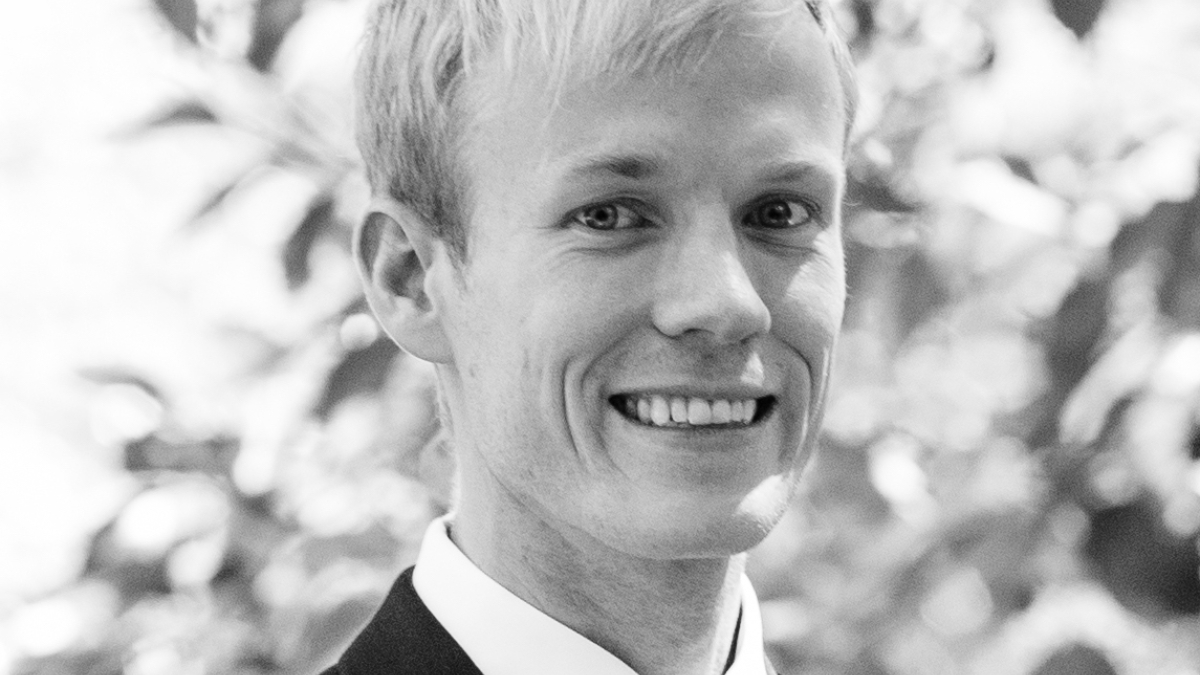Astrophysics graduate looks forward to making a positive impact on those around him

Jake Hanson.
Editor's note: This story is part of a series of profiles of notable spring 2021 graduates.
Jake Hanson knew he wanted to study astrophysics after a visit to Kitt Peak National Observatory the summer after graduating from high school. He remembers the tour they were given by an astronomer and learning about the supermassive black hole at the center of our galaxy.
“I remember feeling awestruck by the magnitude of the forces involved and felt the pursuit of such knowledge was a worthy endeavor,” he said.
Hanson, who is a University Graduate Fellow, is graduating this spring with a PhD in astrophysics from ASU’s School of Earth and Space Exploration.
While at ASU, Hanson had a paradigm shift in understanding the human component of the scientific method. Before becoming a scientist, he felt like science was an objective body of knowledge disconnected from the needs and desires of individual humans, but he’s learned through his time at ASU just how deeply tied people are to their ideas and vice versa.
“At its best, the way someone does science is an aesthetic expression of their personality, much like art,” he said.
Hanson says the ASU professor who taught him the most was his adviser, Professor Sara Imari Walker. He says Walker taught him to enjoy the process of science rather than the end result (because the desired result is never guaranteed) and that she created an environment where it was fun to do physics and collaborate with others.
“Jake’s exceptionally talented as a deep and careful thinker,” said Walker, who is an associate professor in the School of Earth and Space Exploration and deputy director at the Beyond Center for Fundamental Concepts in Science at ASU. “It’s been an honor to work with him.”
For his dissertation, Hanson studied the origin and nature of life in the universe with Walker, and successfully defended it in March.
Hanson shared more about his experience as a graduate student and his plans after graduation:
Question: What’s the best piece of advice you’d give to those still in school?
Answer: My best piece of advice is to try and figure out who you are and what makes you happy. Don’t force yourself to be someone you aren’t in order to appease others. Keep iterating that until you find a place where you feel comfortable and are valued.
Q: What was your favorite spot on campus, whether for studying, meeting friends or just thinking about life?
A: My favorite spot on campus is the garden next to the creative writing building. It is quiet, with tall hedges and a couple of nice fountains. I would go there to read or just relax, and it would feel like I was all alone on campus.
Q: What are your plans after graduation?
A: After graduation I plan on a job in either quantitative finance or data science. Astrophysics teaches you a lot of quantitative skills that are highly valuable in this day and age. What makes me happiest is to help others, so the plan is to make money so I can make a positive impact on those around me.
Q: If someone gave you $40 million to solve one problem on our planet, what would you tackle?
A: With $40 million I would create a startup whose focus is to design technology to help people with disabilities. We are at an interesting point in time where machine learning can be used to improve the performance of virtually any technology but has yet to be widely implemented. In the disability sector, there are opportunities to create affordable technology that could radically improve quality of life.
More Science and technology

Breakthrough copper alloy achieves unprecedented high-temperature performance
A team of researchers from Arizona State University, the U.S. Army Research Laboratory, Lehigh University and Louisiana State…

4 ASU researchers named senior members of the National Academy of Inventors
The National Academy of Inventors recently named four Arizona State University researchers as senior members to the prestigious…

Transforming Arizona’s highways for a smoother drive
Imagine you’re driving down a smooth stretch of road. Your tires have firm traction. There are no potholes you need to swerve to…

